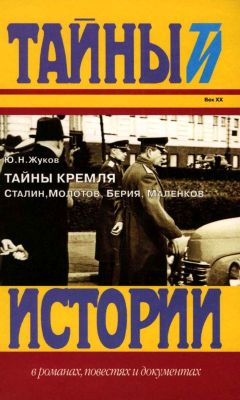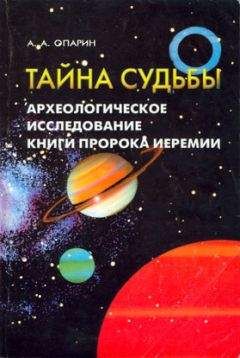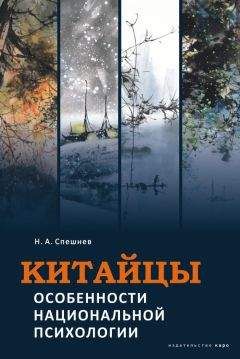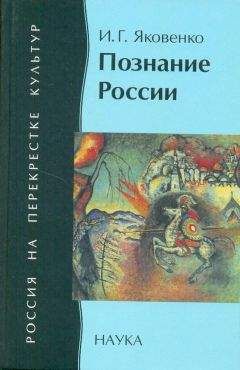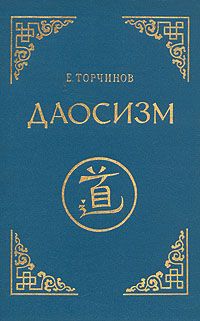Kim ManChoong - The Cloud Dream of the Nine
General Yang got his boy servant to make inquiry first of all as to any news of Moonlight. He went to her home and inquired but the entrance gates were locked, and the upper pavilion closely curtained; only the cherry blossoms were in bloom, smiling over the wall. He asked the neighbours, and they answered that Moonlight had left the place a year and more ago. Some gentleman, they said, who was on his way to a distant part of the country had become betrothed to her, and after that she pretended to be ill, received no guests, went to no official feasts, and declined everything. A little later, in a fit of insanity, she threw away her jewels and head ornaments, donned the garb of a Taoist priestess, and went visiting the temples in the mountains. She never came back and no one knew where she had gone.
The boy returned and told his master, and Yang, who had been happy in the high expectation of seeing her, fell into a fit of gloom and sadness. He passed her home and thought of the happy experiences gone by, and with disappointed feelings went to a public guest-house. Their mysterious meeting had now faded away into the distance, leaving him sleepless.
The governor sent him a score of dancing-girls to entertain him, all women of note in their world. As they sat about in their pretty dresses he recognised among them some who had been present at the Bridge Pavilion. They vied with each other in their attempts to please and win his attention, but he would have nothing to do with any of them.
He composed these two verses and wrote them on the wall:
"The rain sweeps by the Bridge Kiosk,
And o'er the catkins fresh and green,
Its music calls me through-the dusk,
Back to its flowery silken scene;
Behold me now dressed out in state,
Returned to greet my chosen one,
But I have come, alas, too late,
And she, who stirred my heart, is gone.”
When he had finished, he tossed aside his pen, mounted his palanquin and rode away, while all the dancing folk seeing him thus leave untouched by their influence held down their heads in shame.
The dancing-girls copied the verses and gave them to the governor, and he scolded them soundly. “If you had won General Yang's attention your names would have been enhanced a hundred-fold,” he said. “But with all your finery you did not even win a glance from him, and have caused Nakyang to lose face.”
He asked them who the General meant by his reference, and when he learned who it was, he advertised for Moonlight far and wide in the hope of finding her before the General's return.
Yang finally reached the land of Yon. The people living in that distant region had never dreamed of the power or splendour of the capital. Now when they beheld Yang Hallim he seemed like the fabled unicorn that steps down upon the earth, or the phoenix that appears among the clouds. They jostled each other to get close round his palanquin, and blocked his way in their desire to see.
The General in his power of execution was like the swift thunder, and in his readiness to bestow favour like the spring rain; so that these rude people were overcome by his presence, danced and sang with delight, and said to one another: “His divine Majesty the Emperor, will indeed spare us.”
When Yang met the King of Yon he spoke so boldly of the power and prestige of His Majesty; praised the attitude of the Government, and explained so fully the difference between submission and opposition, assistance and resistance, that his words were as irresistible as the lift of the sea, or the falling of autumn frosts. The King of Yon, greatly moved and impressed, was won over. He bowed down to the earth and confessed his faults, saying: “We, in this benighted district, are so far away from the great centre of things, and so out of touch with imperial blessings and favours, that we dared to offer resistance to the state. We have made light of life, and have been ignorant whence our blessings and favours come. And now having heard the convincing words of your Excellency, I see that I have done a great wrong. No more shall such mad thoughts possess me, but I shall sincerely do the part of a loyal and faithful subject. Please, on your return, make my statement for me and let this tributary land find peace instead of war; and blessing and life instead of calamity. This indeed would be for me more than I could expect.”
A great feast was held in the palace of Yon, and the General was offered when he left a hundred talents of gold and ten of the finest horses as tribute presents.
Yang bowed, but did not receive them, setting out empty-handed on his way westward toward home. In ten days or so he passed Hantan, the old capital of Cho, when suddenly a beautiful lad, riding a superb horse, appeared just in front of him. He had heard the calls of the General's out-runners and had dismounted, standing respectfully by the side of the way.
The General looked at him and said: “Yonder horse that that young man rides is a Persian steed, surely.”
As he advanced closer the young rider appeared strangely beautiful, as an opening flower, or the returning circle of the moon. His graceful form, with the light that seemed to emanate from him, dazzled the eyes of the onlooker.
“In all my travels,” said Yang, “I never before saw so handsome a youth as yonder lad. One glimpse of his beautiful face would tell of his gifts and graces. He said to the servants: “Invite him to follow us, will you?”
When the General had retired to his lodgings for the night, the young man appeared before the door and was invited in. Yang at once fell a captive to his spell, and said: “Your handsome face has wholly won my heart. I wish to take you with me, and so sent for you. My one fear has been that you might not respond or wish to follow. Now that you have come I am greatly delighted and want to know who you are and your honourable name.”
The young man made answer: “Your humble servant is from the north land, and my surname is Chok, and given-name, Paik-nan. I have been brought up in an exiled country, have had no special friends or teachers to guide me, and so my learning is of a very shallow nature, attaining to proficiency neither in the character, nor in the handling of the sword. My heart only is right adjusted, and means to stand by its friends, or if need be die for them. Your Excellency's journey through the north, where all have been equally impressed by your commanding presence and unexampled favour, has awakened my heart in admiration to a point that knows no bounds. Forgetful of my low birth and ignorance, I desired to attach myself to your lordship, to be your faithful bird of the morning or watch-dog of the night. Now your Excellency, taking note of this wish of mine, has condescended to call me, and has done me such an honour as I had never dreamed. Assuredly the great teacher's kindness bestowed upon a humble pupil is mine to-day.”
Yang, greatly delighted, made reply: “The ancients said, 'A similar sound makes like echo, and like strength does a similar deed.' A beautiful fulfilment of this is evident in the fact that our hearts agree.”
From this time on Master Chok rode bridle by bridle in company with the General and lived and dined with him. They admired the beauties of nature together, delighted themselves under the soft rays of the moon, and forgot all about the hardships of the way.
Again the cavalcade arrived at Nakyang and crossed the Chon-jin Bridge. Old remembrances came crowding back on Yang, and he said: “Now that Moonlight is a so-called priestess, my heart condemns me when I think of her wandering over the hills in order to fulfil her vow, and to wait for my return. Already I have gone by once with the insignia of battle-axes and banners accompanying me, but she was nowhere to be seen. So all our plans have come to naught, as men's plans do. How can I be other than sad? If Moonlight knew of my coming she would not fail to meet me, but her sweet face is not here. I expect that if she is not to be found in the Taoist Temple, she will be somewhere among the Buddhist priestesses. How can I send word to her? Alas, if we do not meet this time, how much of life may pass before we ever meet again?”
Just then he raised his eyes toward the distance and there he saw a young woman with a gem screen hanging before her, leaning gently on the railing of a neighbouring pavilion, evidently watching the chariots and the horses go by. It was Moonlight.
Yang, pent up with heart longings and desire to see her face to face, caught sight of her lovely expression which took a fresh and new grip upon him. He drove hastily by and the two looked their messages of lively recognition each toward the other.
When he reached the guest-house Moonlight was already there, having come by a short and ready road. She saw him dismount from the chariot and tripped forth to meet him. First she bowed low. She then accompanied him into the guest-room, where, in her joy of soul, she took hold of the border of his robes and told how happy she was after the sorrows of the year that had gone. Her tears flowed faster than her words. She bowed again and congratulated him upon his safe return. All that had happened during the long interval since they had said good-bye was told.
“When you left me,” said she, “I was invited to the gatherings of the princes, and feasts of the nobility. Invitations came from north, south, east and west, till I was wearied out. At last I cut off my hair with my own hands to escape dishonour, and then pretended that I was smitten with a dangerous illness. I threw away all my pretty ornaments, put on the dress of a priestess, made my escape from the busy city and went and lived in the mountains. From the guests who came to visit the temples, and from others of the city and the capital who were studying Taoism, I learned news of your lordship. Early last spring I heard that you had memorialised the Emperor and had gone forth as his special envoy. I knew that you passed the city, but the distance was too great for me to return. All I could do was to look toward the distant kingdom of Yon and let my tears fall. The magistrate, knowing that I had become a priestess because of you, showed me what you had written on the walls of the monastery, saying: 'General Yang, with direct orders from His Majesty the Emperor, came by this way. Many dancing-girls welcomed his coming, but because his lordship did not see you, he was greatly disappointed and would have nothing to do with any of them. In his disappointment he wrote this on the wall and left. How was it that you of all others should be off there in the hills and so cause my entertainment of the envoy to be a failure?'
“And thus desirous of showing you all respect, he apologised for his hard treatment in the past, earnestly desiring me to come back to my home in the city to await your return. I was delighted to do so. Then it was that I first realised that I, an insignificant woman, had a certain value attaching to my person. I waited alone in the Chon-jin Pavilion hoping for your coming. Will not the many dancing-girls of the city and the crowds of the streets, every one of them, envy my place of honour and the glory that comes to me?
“I have already learned that you won the kwago (examination), and that you were made a hallim (a literary senator), but I have wondered whether you were married or not.”
Yang replied: “I am already engaged to the daughter of Justice Cheung, but the ceremony has not yet been celebrated. The superior attainments of the lady are already known to me, and she is exactly what you foretold. My pretty go-between has loaded me with obligations greater than the mountains of Tai.”
They renewed their former happy acquaintance and he tarried for several days. Because of Moonlight's presence the young man Chok did not call. Once the servant-boy came in in great alarm to say to the master: “Your humble servant has noticed that the young gentleman Chok is not a good man. I saw him in the women's quarters joking and playing with Moonlight. Moonlight is in the service of your lordship, how could she be treated thus familiarly?
The Hallim made reply: “Master Chok would never do such a thing as this, and I have all confidence in Moonlight too; you have been mistaken.”
The boy was very angry and went out. In a little he came again and spoke: “Your lordship said that my report was nonsense. The two now are holding hands and enjoying themselves together. If you will please come out and see for yourself you will know whether my story is correct or not.”
Yang went out and looked toward the servants' quarters, and there the two were leaning over the wall talking and laughing together, fondling each other's hands and having a very amusing time.
Desiring to hear what they were saying, Yang went closer, but master Chok hearing the sound of foot-falls took alarm and ran away. Moonlight looked back at the master, and an unexpected blush of shame covered her face.
Yang asked gently: “Moonlight, my dear, are you specially acquainted with master Chok?”
Moonlight replied: “We are not relatives, he and I, but I dearly love his sister and we were talking about her. I am, as you know, only a dancing-girl, so that my eyes and ears are steeped in the ways of the world, and I am not afraid of men. By holding hands and jesting, and whispering as I have done, I have raised a doubt in my kind master's mind. My shame is so great for it that I really desire to die.”
Yang said: “I have no doubts of you at all, so do not be in the least disturbed.”
He thought to himself: “Chok is a young man, and his being caught thus by me will make him feel ashamed. I must call him and assure him that I am not disturbed.” So he sent for his boy to come, but he was nowhere to be found. With great regret he said: “In olden time King Cho-jang made them all break off their hat-strings in order to quiet their fears; now I, in my aimless peering about, have disappointed my friend and have lost me my lovely scholar. What shall I do about it?” He made the servants seek high and low, inside and outside the walls for Chok.
That night he talked over the past with Moonlight and said how they were indeed destined for each other. They drank and were happy till the hours grew late. Then they put out the lights and slept. When the east began to lighten he awoke and saw Moonlight doing up her hair before the mirror. He looked at her with tenderest interest and then gave a start and looked again. The delicate eyebrows, the bright eyes, the wavy hair like a cloud over the temples, the rosy-tinted cheeks, the lithe graceful form, the white complexion—all were Moonlight's, and yet it was not she.
Alarm and doubt overcame him so that he dared not speak.
Chapter VIIThe Imperial Son-in-Law
WHEN Yang had looked again carefully and had made sure that it really was not Moonlight, he asked: “Maiden, who are you?”
She replied: “Your servant was originally from Pa-ju. My surname is Chok and my given name is Kyong-hong, or Wildgoose. When I was young, Moonlight and I became covenanted sisters, and because of this close bond of union, she said to me last night: “I am feeling unwell and cannot wait on the Master. Take my place, please, and save me from a reprimand. Thus at the request of Moonlight I came boldly into your lordship's room.”
